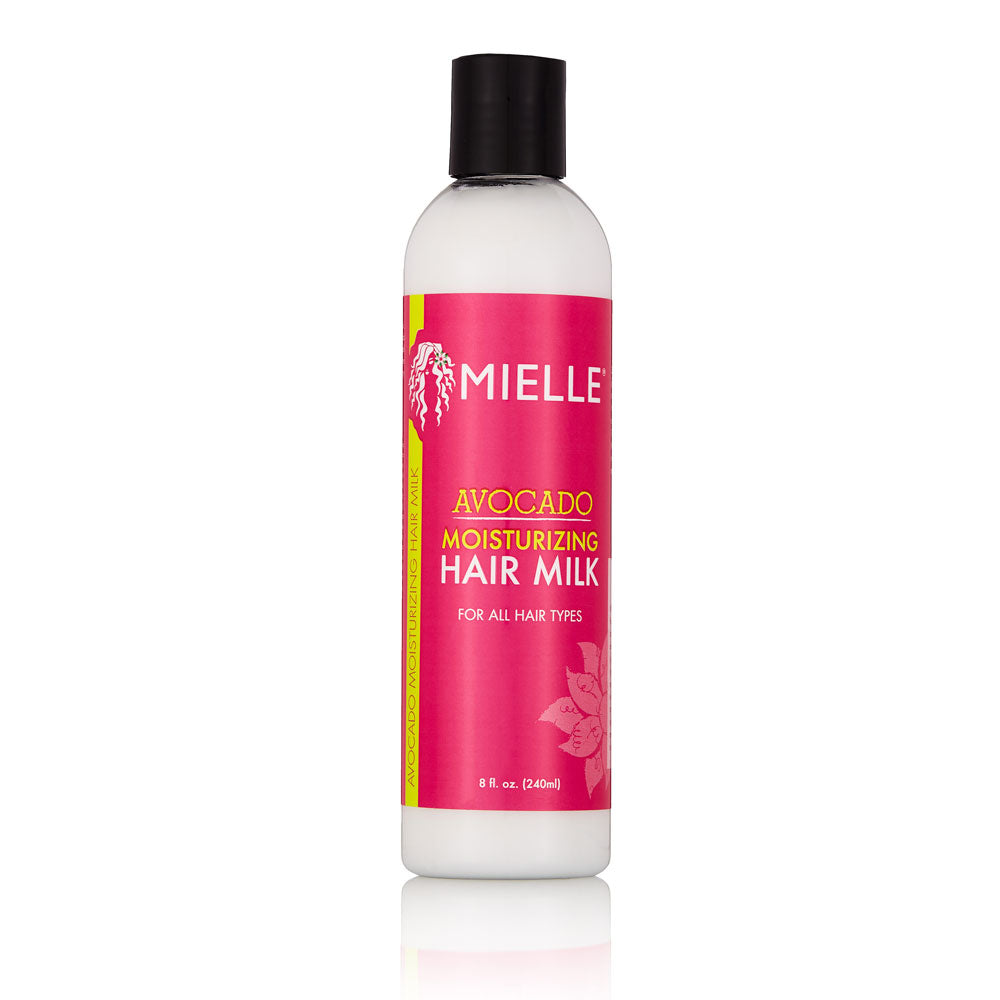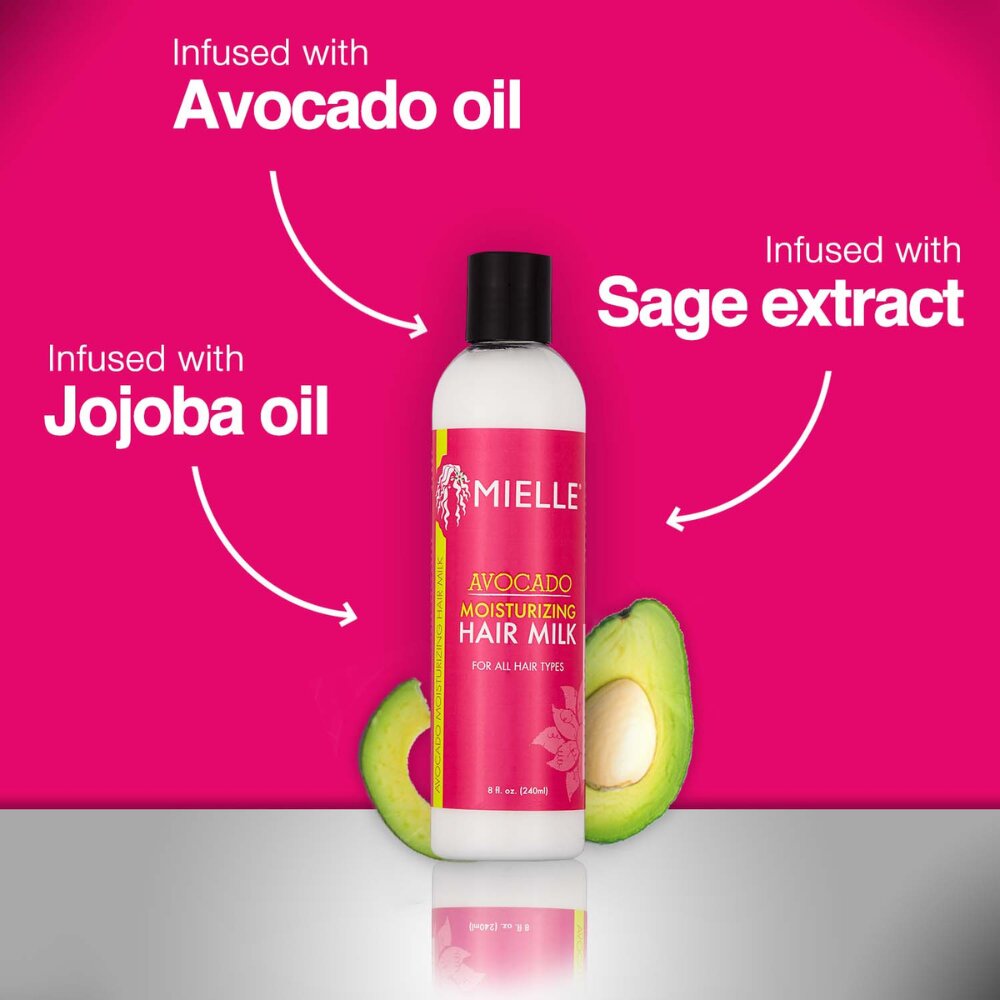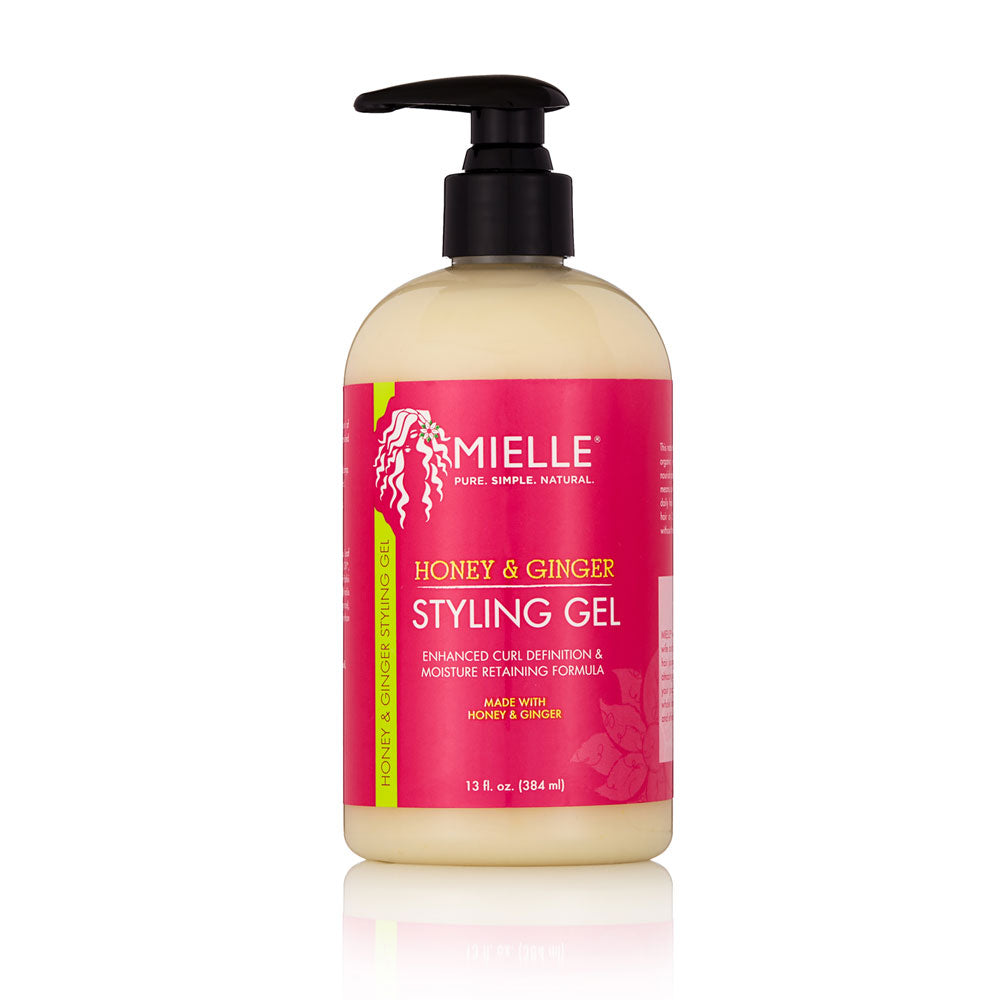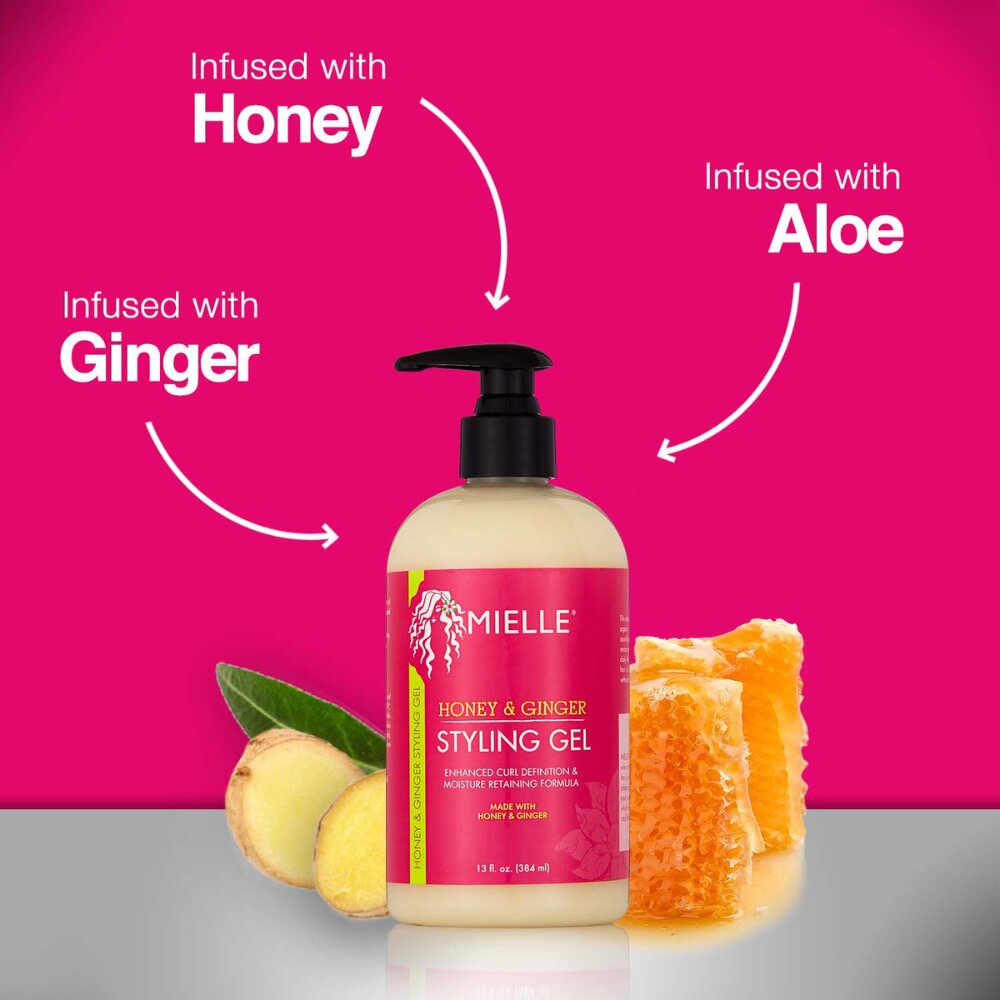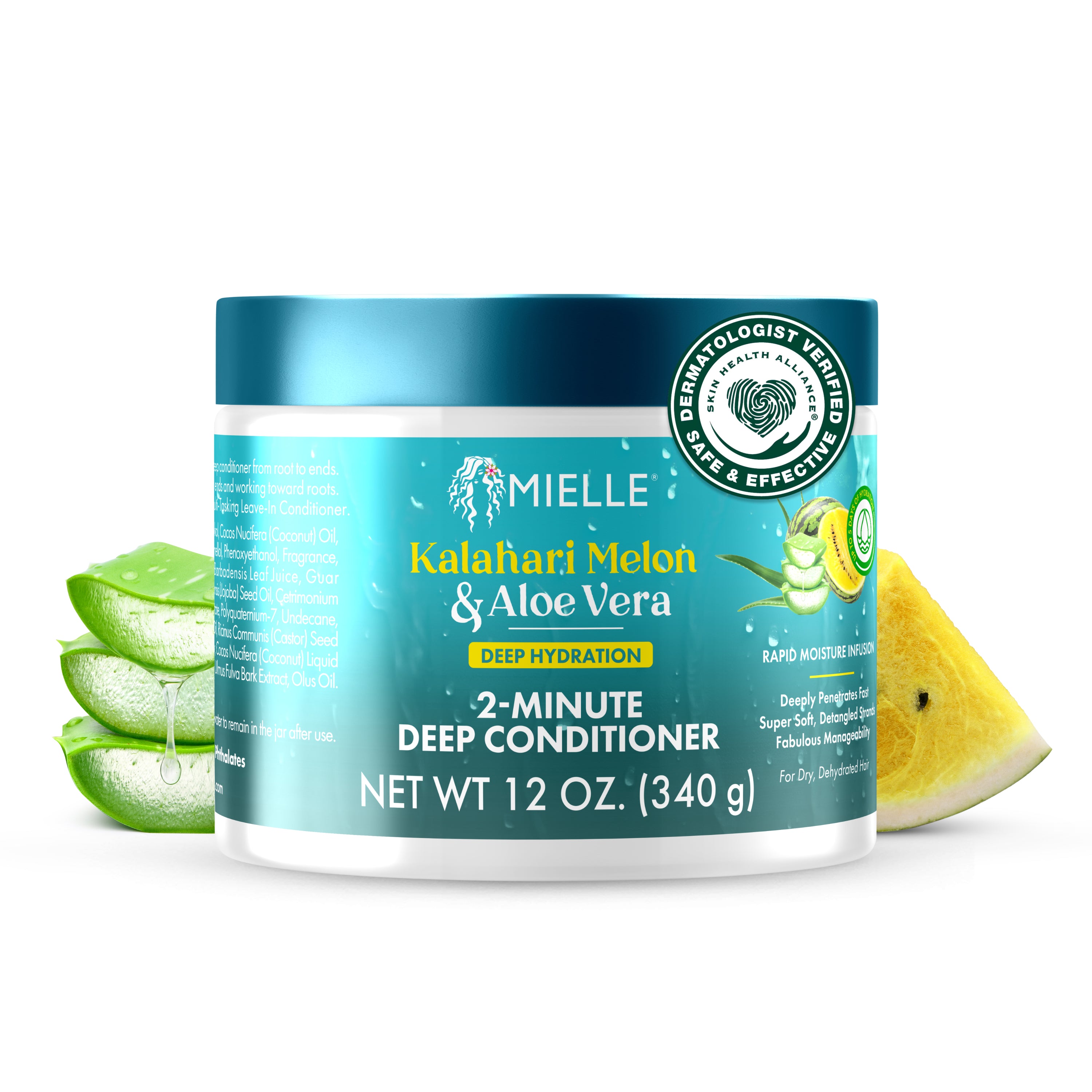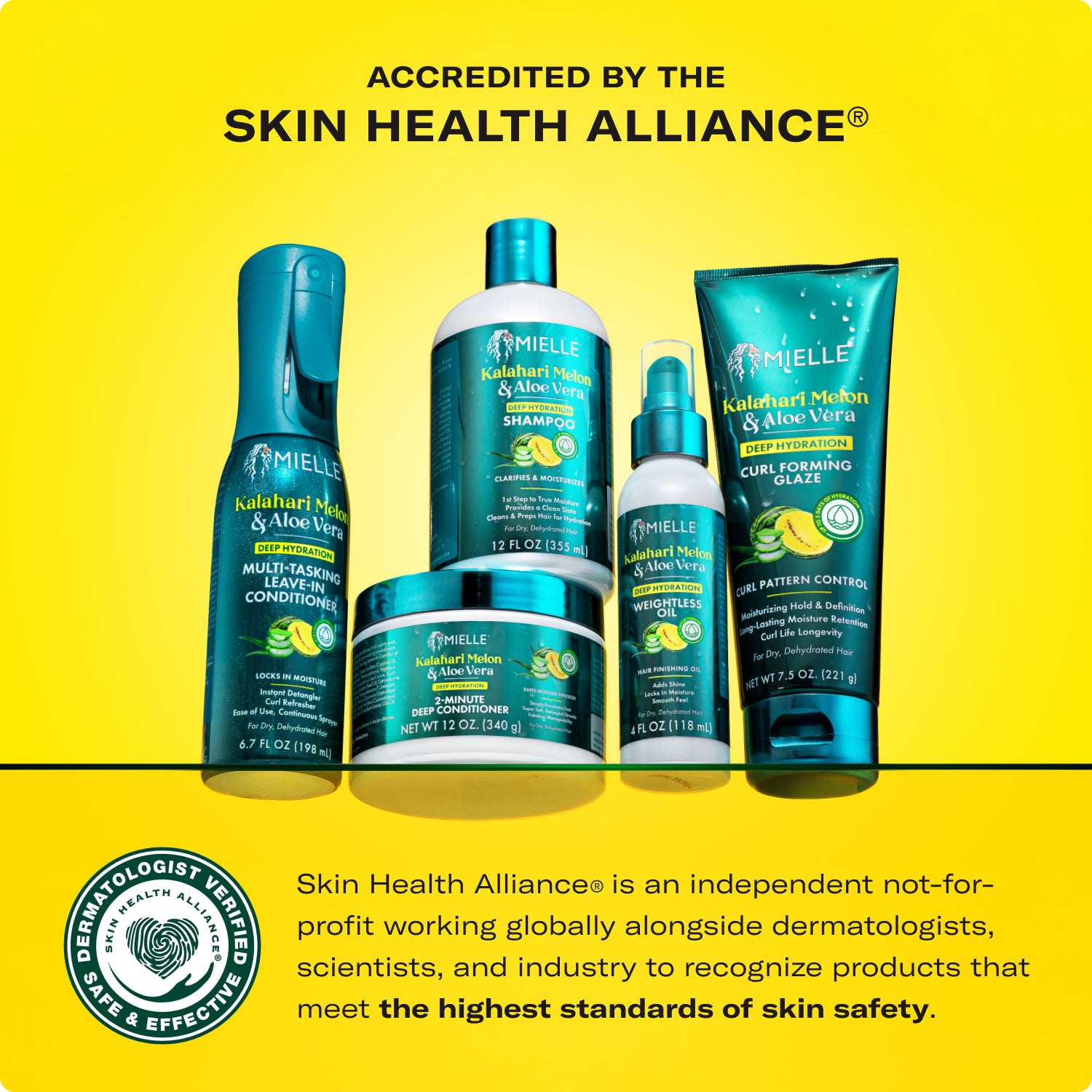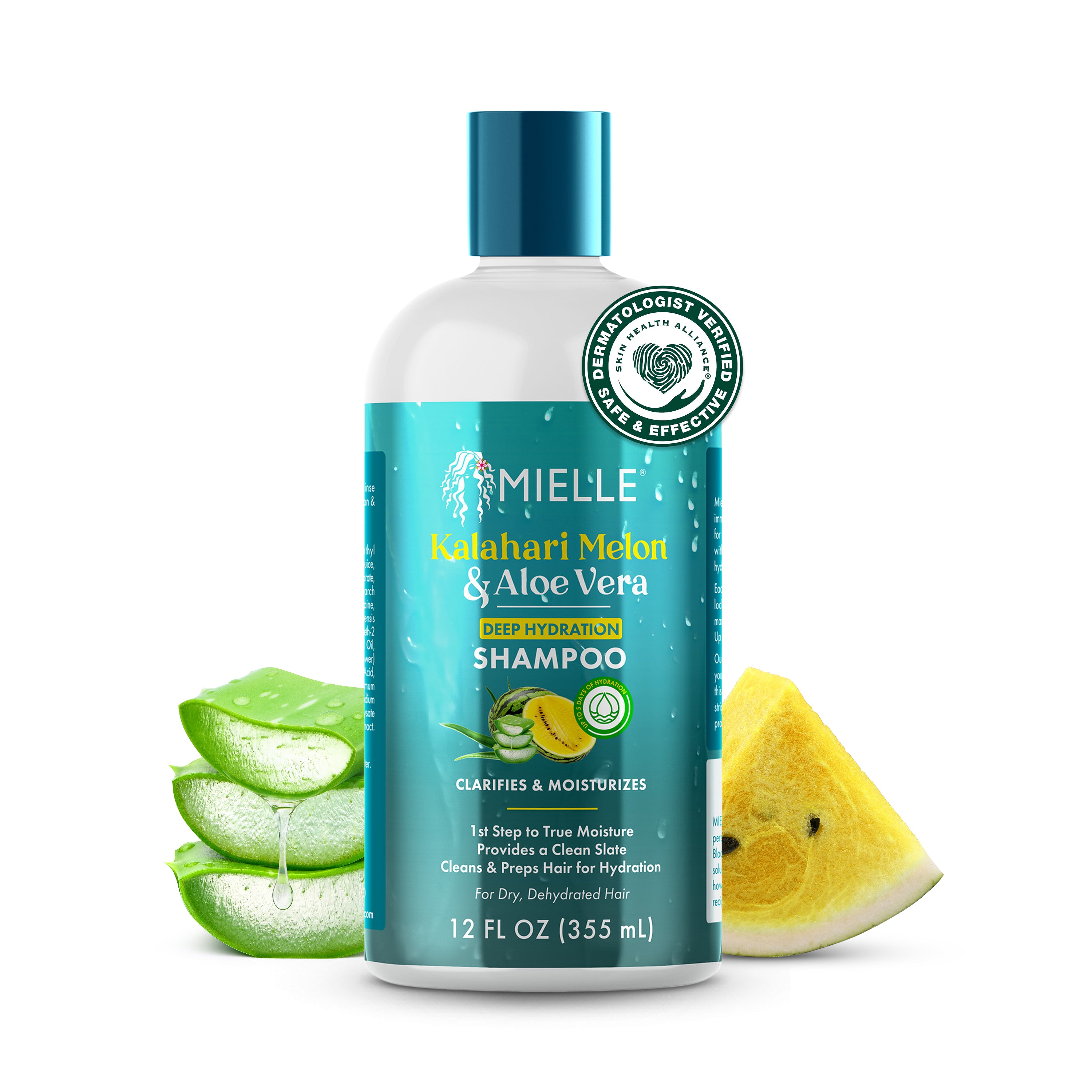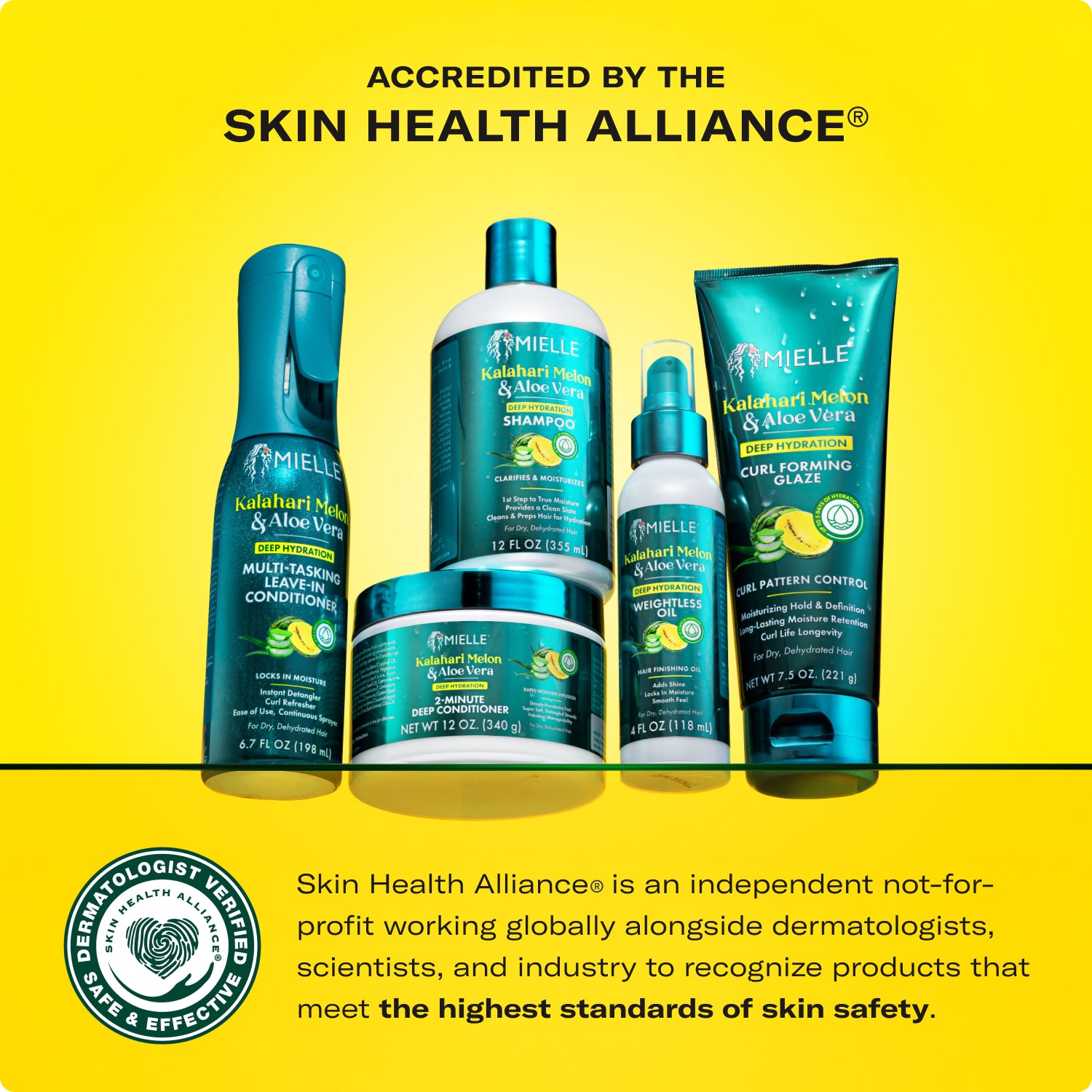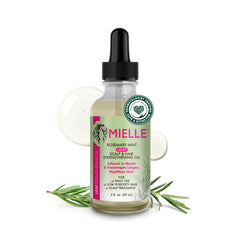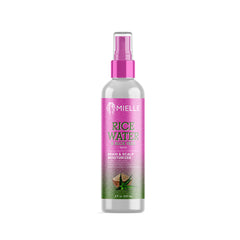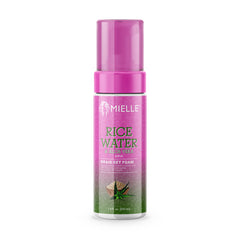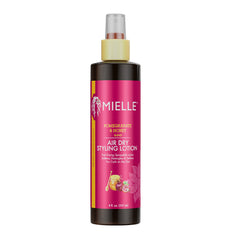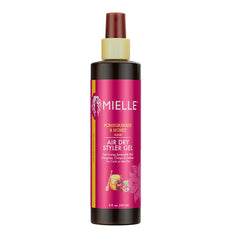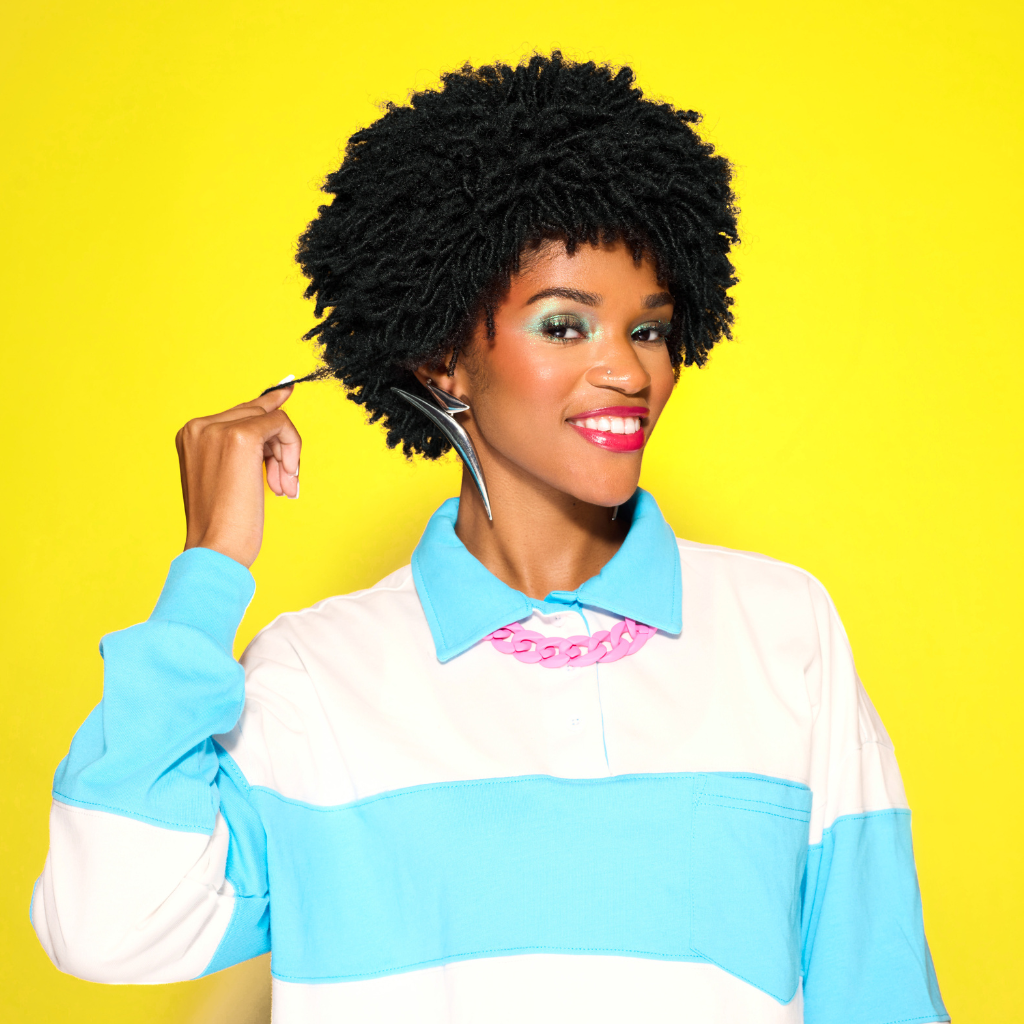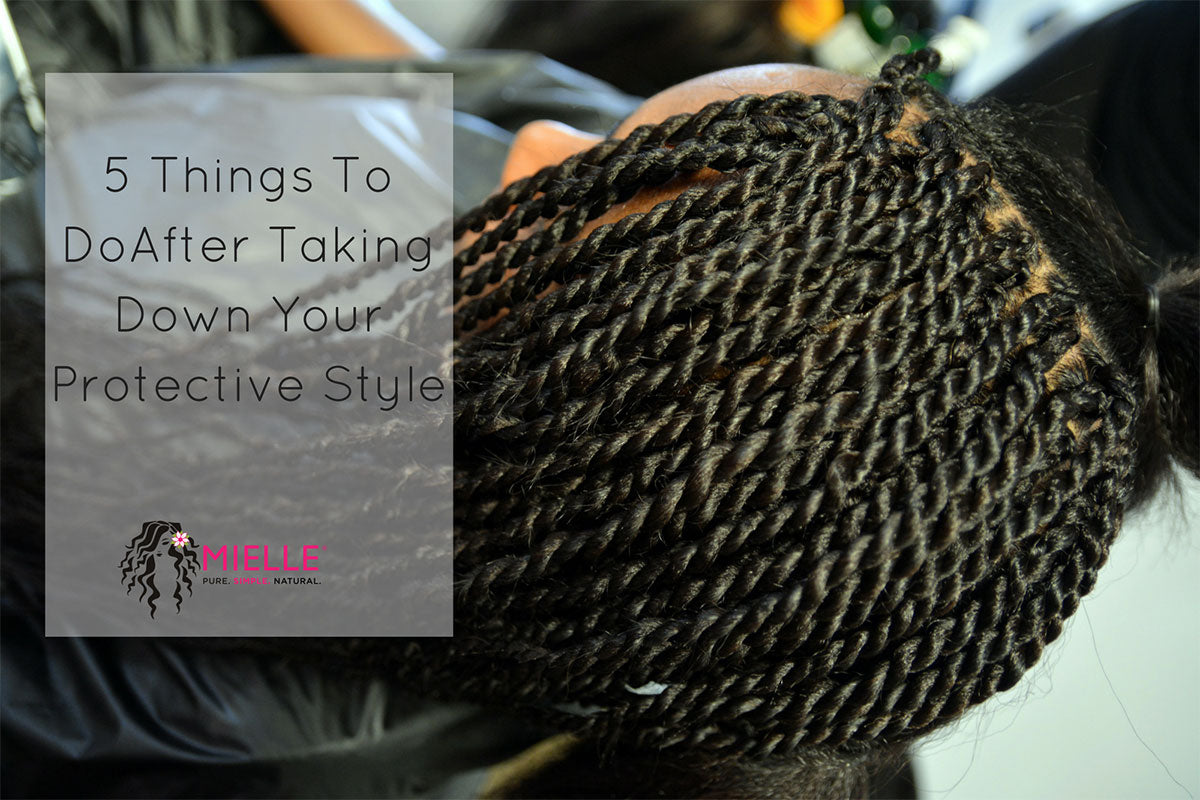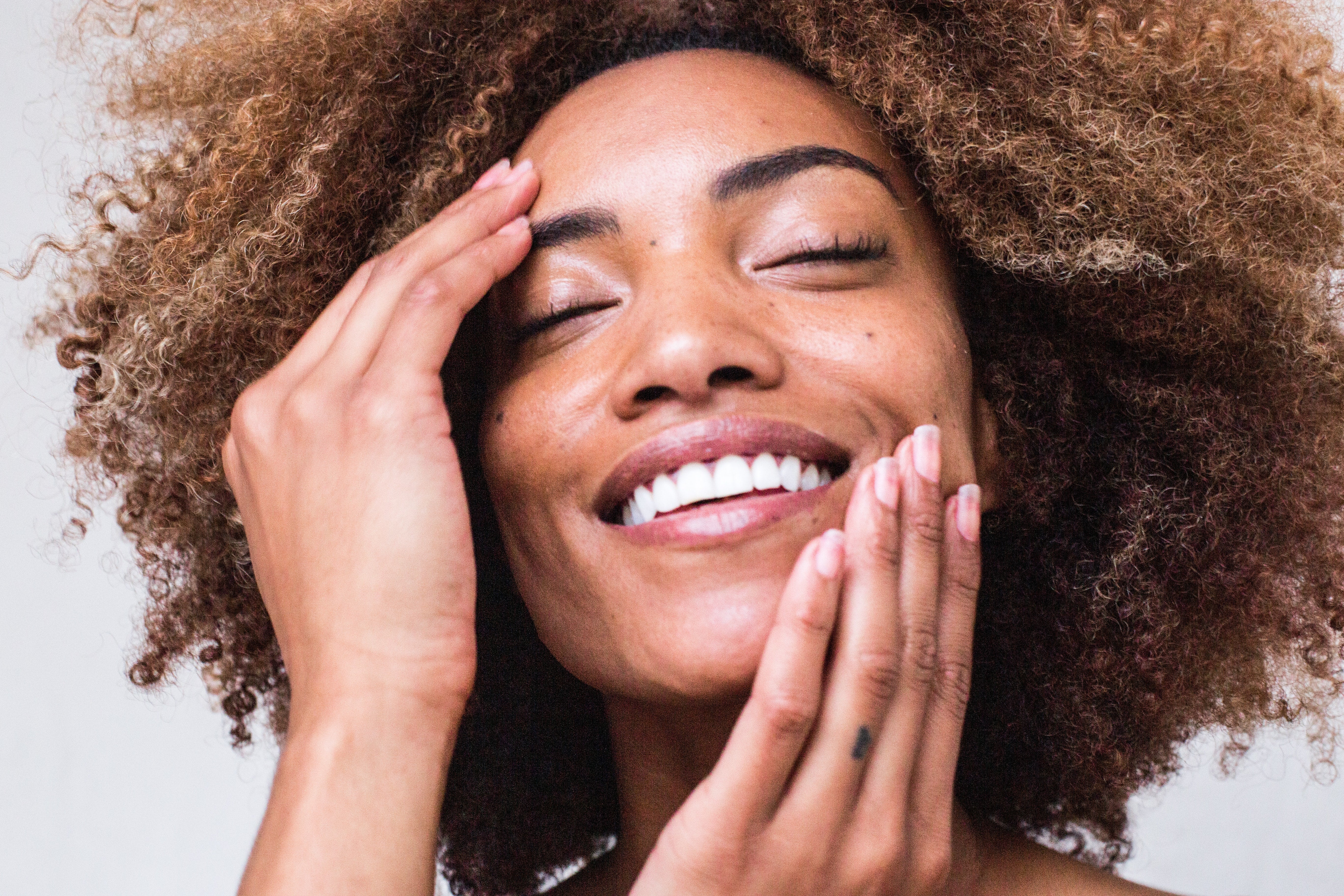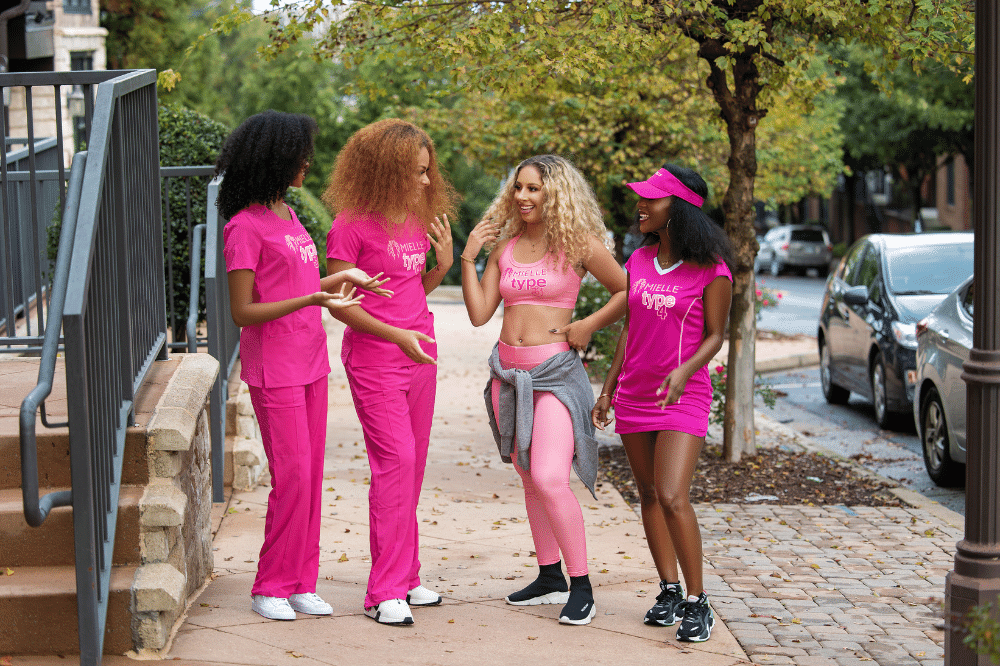By Tiffany Walker
You were probably taught that healthy hair starts with a heavy-duty cleansing shampoo, with sudsy bubbles that can take on even the heaviest gels and the thinkest creams. But, is it bad to wash your hair every day? That squeaky clean feeling, while sometimes satisfying, can be scary for your hair health.
After using one of these heavy-duty clarifying shampoo products, you might be left with dry hair. In this case, you may wonder: “Is shampoo bad for your hair?”
It turns out the answer isn’t so simple as not all shampoos are created equal. To give you a clear answer, we’ll need to cover:
- How does shampoo work
- Surfactants: Are they bad for hair?
- What else is in shampoo
- What you should use to cleanse your hair
So, if you’re hesitant about shampoo and are wondering how often should you wash curly hair, this article is for you.
How Does Shampoo Work?
The main cleansing component of shampoos are detergents called surfactants. Surfactants are molecules that break down the oil and dirt on your hair. They do this in two parts. The first part is hydrophobic (water-repelling), while the second part is hydrophilic (water-attracting).
The hydrophobic part of the molecule will bind to the broken down oil on your hair and any oily hair styling products.
Then, the hydrophilic part of the molecule will attract water to it, so the shampoo rinses easily with water, carrying away all the oil it attracted.
It’s probably been a while since your last chemistry class, so you might want to strap in and hang onto your hair. We’re about to get sciency.
Surfactants: Are They Bad for Hair?
Not all surfactants are moisture-stripping. Every shampoo has detergent, but the main culprit is if the detergents are sulfate-based.
Sulfates
When you hear that shampoo is bad for your hair, it probably comes from people being suspicious of sulfate shampoo.
Commonly used sulfates are sodium lauryl sulfate (SLS), sodium laureth sulfate (SLES), and ammonium laureth sulfate. The main concern about sulfates is that they’re too effective at cleansing. They can take away the protective scalp oils along with the excess oil, dirt, and product on your hair. This can lead to dryness and brittle hair, which can lead to hair damage.
It’s true that sulfates are very efficient cleansers and known irritants.
So, while sulfates alone are pretty harsh, many formulations of shampoo for curly hair also include conditioning agents to balance the harshness of sulfates. When it comes to the moisture curly hair requires, look out for natural hair products with a good balance of ingredients to avoid damaged hair. You may want to look into the benefits of co-washing. What is co-washing hair, you may be wondering? Learning how to co-wash hair can be tricky, but in short, it is done by using conditioner or co-wash product between shampoos. This helps the hair to avoid over-stripping.
Non-Sulfate Surfactants
What about surfactants that aren’t sulfates? Many hair care brands have responded to consumers’ fears about sulfates with sulfate-free shampoo products.
The new surfactants on the scene are called amphoteric surfactants, and they’re mild enough to show up in baby shampoo. When checking out shampoo bottle ingredient labels, you may come across surfactants like:
- Cocamidopropyl betaine
- Lauryl betaine
- Decyl glucoside
- Lauryl glucoside
Some sulfate shampoo hair products will include these milder surfactants for a more balanced shampoo.
What Else is in Shampoo?
Surfactants typically only make up 10% to 20% of shampoo formulations.
If we look into the other 80% to 90%, will we find something bad? Not really.
Conditioning Agents
Many shampoos have conditioning agents in them that make them gentler on hair. Old school shampoos used silicones, but many new shampoos are silicone-free.
Other examples of conditioning agents are:
- Hydrolyzed silk protein – Hair is made of protein, so hydrolyzed silk protein can further strengthen it. It can also give added shine and flow to your hair.
- Propylene glycol and glycerin – These are humectants. A humectant’s job is to draw moisture from the environment, which is especially beneficial for thirsty curly hair. The best co-wash for curly hair should contain these ingredients.
- Oils – Oils are often added to shampoos to provide slip and softness.
Conditioning agents make up around 1% f a shampoo.
Other Ingredients
Shampoo (and many cosmetic products) are made up of tons of other ingredients, each of which makes less than 1%. These ingredients are only needed in tiny amounts for them to be effective:
- Citric acid or glycolic acid – Citric acid and glycolic acid are used to make shampoo more acidic. Hair products that are too alkaline are harsh on the hair and scalp.
- Sodium Chloride – Sodium chloride is used as a thickener.
- Tetrasodium EDTA – Tetrasodium EDTA is a water-softening agent, making it easier for shampoo to lift oil from your hair.
- Preservatives – Preservatives prevent microorganisms’ from forming that could destroy the product or damage your skin or hair. However, some people consider them to be a touchy subject from a health perspective. Claims have linked preservatives (especially parabens) to cancer. While these claims are scary, they are unfounded according to the FDA’s evaluation of the science.
- Plant Extracts – Plant extracts are added in many shampoo formulations for added vitamins or proteins.
- Fragrance – Fragrance is an umbrella term that could hold a number of unknown ingredients. That doesn’t mean it’s dangerous, but it’s not particularly beneficial, especially on a sensitive scalp. If your scalp is sensitive, it would be safer for you to choose a fragrance-free shampoo.
So you may be wondering, what happened to the rest of the shampoo? What’s the big secret ingredient?
Water
As it turns out, shampoo formulations are 73% to 90% water.
What Should You Use to Cleanse Your Hair?
The best cleanser for you depends on what you’re looking for. A lot of naturalistas use sulfates for a clarifying cleanse. Meanwhile, non-sulfate shampoos are suitable for a balanced cleanse on a regular basis or for those who have more sensitive skin. We also provide a co-wash detangler for natural hair that is a great option for curly hair.
Mielle Organics carries several shampoos formulated with ingredients that moisturize and strengthen, keeping your hair health in mind. Visit our site to find out more today!

Sources:
- The Trichological Society. Surfactants and Shampoos. https://www.hairscientists.org/surfactants-and-shampoos
- ScienceDirect. Skin Irritation. https://www.sciencedirect.com/topics/medicine-and-dentistry/skin-irritation
- Indian Journal of Dermatology. Shampoo and Conditioners: What a Dermatologist Should Know. https://www.ncbi.nlm.nih.gov/pmc/articles/PMC4458934/#ref22
- ScienceDirect. Shampoo. https://www.sciencedirect.com/topics/chemistry/shampoo#:~:text=The%20content%20of%20surfactants%20in,is%20given%20in%20Table%2036.2.&text=Surfactants%20emulsify%20oily%20dirt%20on,36.1
- Michigan State University Center for Research on Ingredient Safety. Cosmetics – Exploring Humectants. https://www.canr.msu.edu/news/cosmetics-exploring-humectants
- Prospector. Then and Now: Shampoo Formulations through the Years. https://knowledge.ulprospector.com/6253/pcc-shampoo-formulations-through-the-years/
- Cosmetics Info. How Preservatives Keep Cosmetics Safe. https://cosmeticsinfo.org/blog/how-preservatives-keep-cosmetics-safe
- U.S. Food and Drug Administration. Parabens in Cosmetics. https://www.fda.gov/cosmetics/cosmetic-ingredients/parabens-cosmetics
- International Journal of Toxicology. Final amended report on the safety assessment of Methylparaben, Ethylparaben, Propylparaben, Isopropylparaben, Butylparaben, Isobutylparaben, and Benzylparaben as used in cosmetic products. https://pubmed.ncbi.nlm.nih.gov/19101832/
